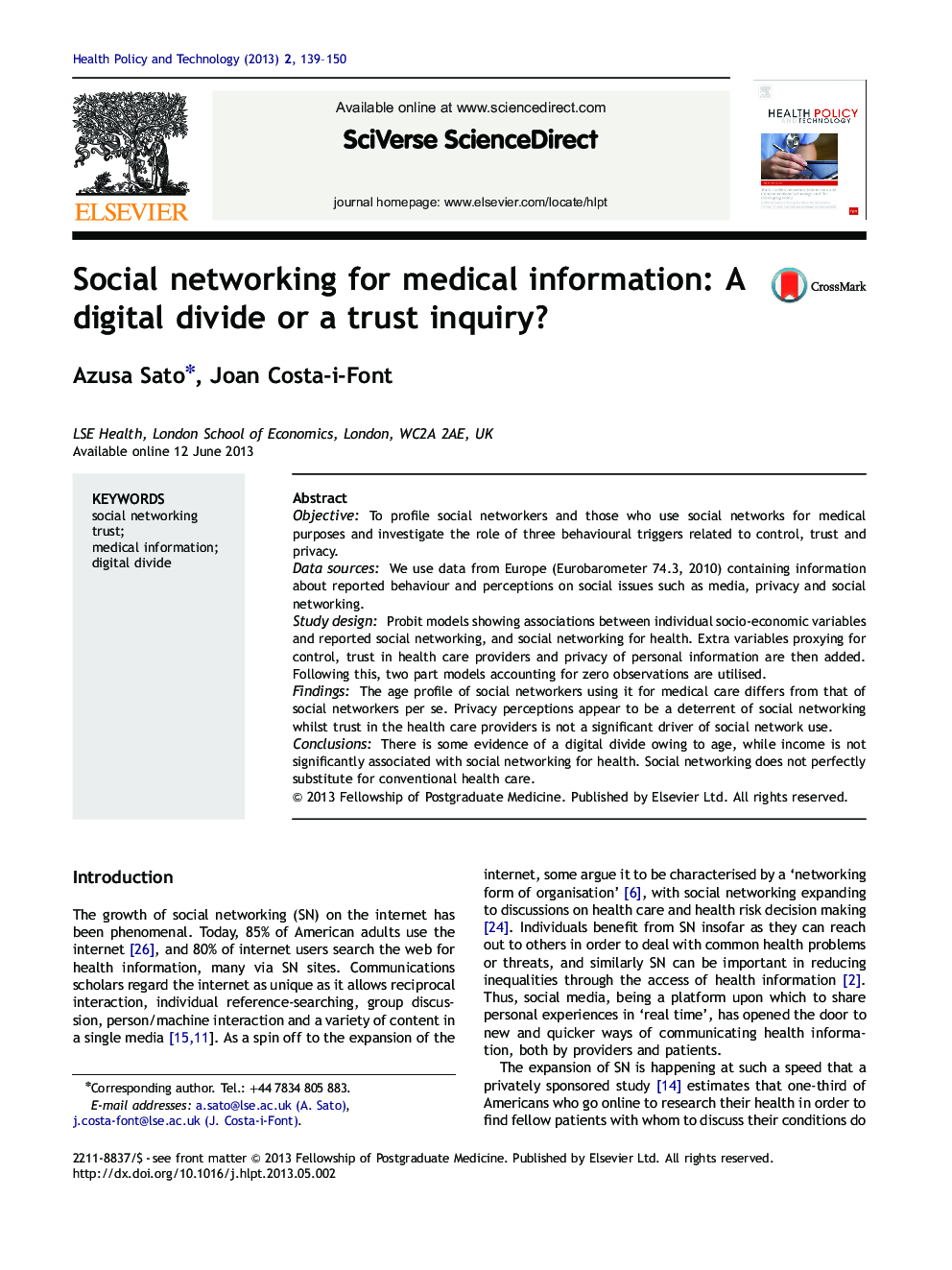| Article ID | Journal | Published Year | Pages | File Type |
|---|---|---|---|---|
| 3327367 | Health Policy and Technology | 2013 | 12 Pages |
•The age profile of social networkers using it for medical care differs from that of social networkers per se.•Privacy perceptions appear to be a deterrent of social networking.•Trust in the health care providers is not a significant driver of social network use.
ObjectiveTo profile social networkers and those who use social networks for medical purposes and investigate the role of three behavioural triggers related to control, trust and privacy.Data sourcesWe use data from Europe (Eurobarometer 74.3, 2010) containing information about reported behaviour and perceptions on social issues such as media, privacy and social networking.Study designProbit models showing associations between individual socio-economic variables and reported social networking, and social networking for health. Extra variables proxying for control, trust in health care providers and privacy of personal information are then added. Following this, two part models accounting for zero observations are utilised.FindingsThe age profile of social networkers using it for medical care differs from that of social networkers per se. Privacy perceptions appear to be a deterrent of social networking whilst trust in the health care providers is not a significant driver of social network use.ConclusionsThere is some evidence of a digital divide owing to age, while income is not significantly associated with social networking for health. Social networking does not perfectly substitute for conventional health care.
